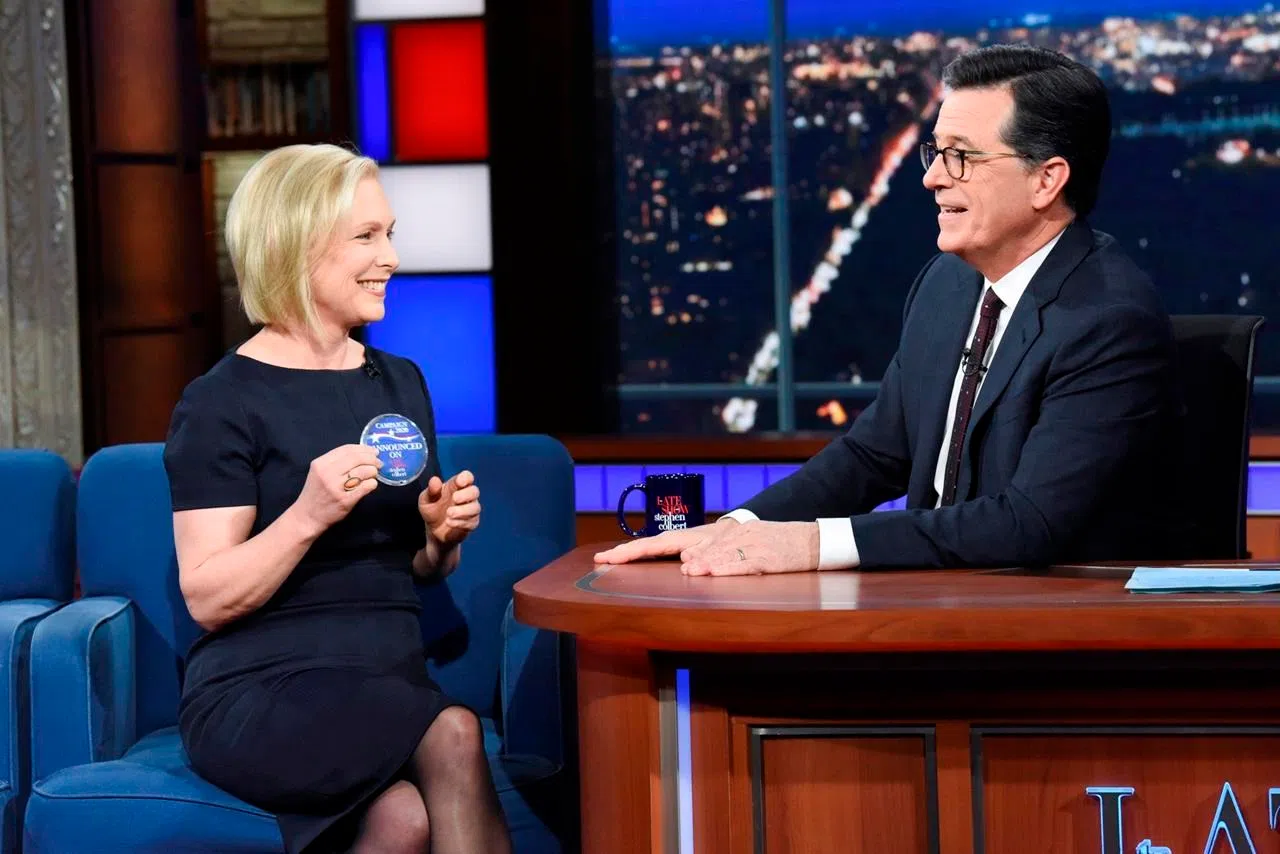
Colbert, Maddow are coveted slots for presidential wanna-bes
NEW YORK — Kirsten Gillibrand is hitting the television daily double this week. The New York senator announced her presidential candidacy on Stephen Colbert’s “Late Show,” following it up with an MSNBC interview Wednesday with Rachel Maddow.
Her itinerary reflects the importance of those two media figures to the expected crowd of Democrats seeking President Donald Trump’s job. They are dream bookings for campaign aides.
Gillibrand followed Massachusetts Sen. Elizabeth Warren, who was interviewed by Maddow on Jan. 2. California Sen. Kamala Harris and former Housing Secretary Julian Castro have appeared with Colbert over the past month, but only Gillibrand earned a special “I announced on the ‘Late Show with Stephen Colbert’” pin.
Colbert’s withering comic take on Trump has taken him to the top of late-night ratings. Since targeting Trump hardly makes him unique among TV comics, his success gives the “Late Show” particular cache. So far this season he’s averaging 3.76 million viewers a night, compared to 2.49 million for NBC’s Jimmy Fallon and 2.07 million for ABC’s Jimmy Kimmel, according to the Nielsen company.


